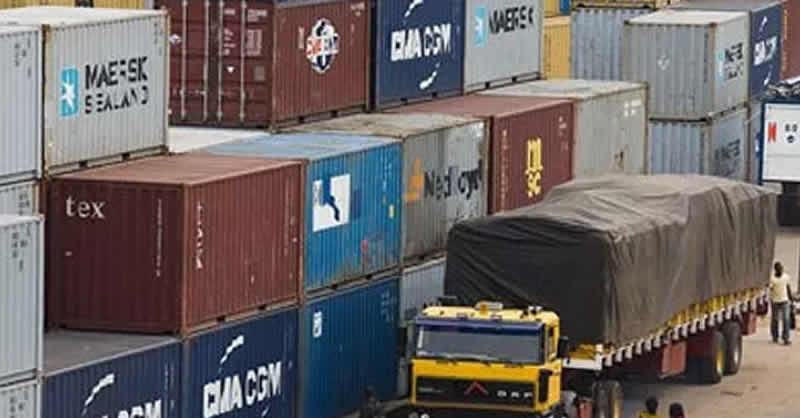The proliferation of abandoned, rickety shipping containers in Nigeria poses a significant and multifaceted threat to the nation’s economy and environment. These containers, left behind by shipping lines who find it cheaper to abandon them than to return them to their origin, clutter ports, terminals, and even waterways, creating a cascading series of negative consequences. From clogging vital transport arteries to leaching harmful pollutants into the environment, these discarded steel boxes represent a ticking time bomb with far-reaching implications.
The sheer scale of the problem is alarming. Estimates suggest that anywhere from 65,000 to 100,000 empty containers are currently languishing in Nigeria, with a significant percentage deemed structurally unsound. The cost of shipping a single container back to its origin can range from $2,000 to $6,000, depending on size, a cost that shipping companies are seemingly unwilling to bear. As a result, approximately 97% of incoming containers remain in Nigeria, contributing to a growing backlog that overwhelms ports, disrupts domestic trade, and degrades the environment. This economic burden is estimated to cost Nigeria approximately $500 million annually, encompassing demurrage fees, storage costs, port delays, lost freight revenue, and the impact of fluctuating exchange rates.
The environmental consequences are equally dire. Corroding containers release heavy metals into the soil and groundwater, contaminating agricultural land and drinking water sources. These containers also trap organic waste, obstruct drainage systems, and reduce the navigable depth of waterways, impacting both transportation and fishing livelihoods. Furthermore, they serve as breeding grounds for disease vectors like mosquitoes and rodents, increasing the risk of malaria, leptospirosis, and other waterborne illnesses. Coastal and riverine communities, often lacking adequate waste management systems, bear the brunt of these health risks.
The impact on Nigeria’s transportation infrastructure is substantial. Container congestion cripples both national ports and inland waterways. Up to 80% of Nigeria’s outbound container traffic consists of these empty containers, exacerbating delays and reducing terminal capacity, especially for export-bound goods. On waterways, submerged or stranded containers create silt dams, further restricting navigation. This forces detours, increases the risk of collisions, and disrupts fishing activities. The blockage of waterways also exacerbates flooding in cities like Lagos and Onitsha, leading to further health and economic consequences.
Communities dependent on waterways for transport and fishing are particularly vulnerable. Canoe operators face increased navigation hazards and reduced catches as fish populations decline due to habitat disruption and pollution. The economic hardship faced by these communities is compounded by the lack of formal waste management systems, forcing them to adapt to hazardous conditions and further subsidizing the logistics chain through unsafe practices. The informal economies that arise around container storage, while providing some opportunities, also contribute to property devaluation, health risks, and social exclusion.
The imbalance between the cost of returning containers and the profit from abandoning them perpetuates this cycle. Shipping operators prioritize financial gain over environmental responsibility, and current regulations fail to account for the negative externalities imposed on Nigeria. While the Nigerian Ports Authority (NPA) has initiated efforts to address container congestion, such as utilizing holding bays and bonded terminals, more comprehensive solutions are needed. Addressing this crisis requires a multi-pronged approach involving stricter regulations, incentivizing container return, and investing in sustainable waste management practices. Without decisive action, the economic and environmental costs associated with abandoned containers will continue to escalate, threatening the livelihoods and well-being of communities across Nigeria.














